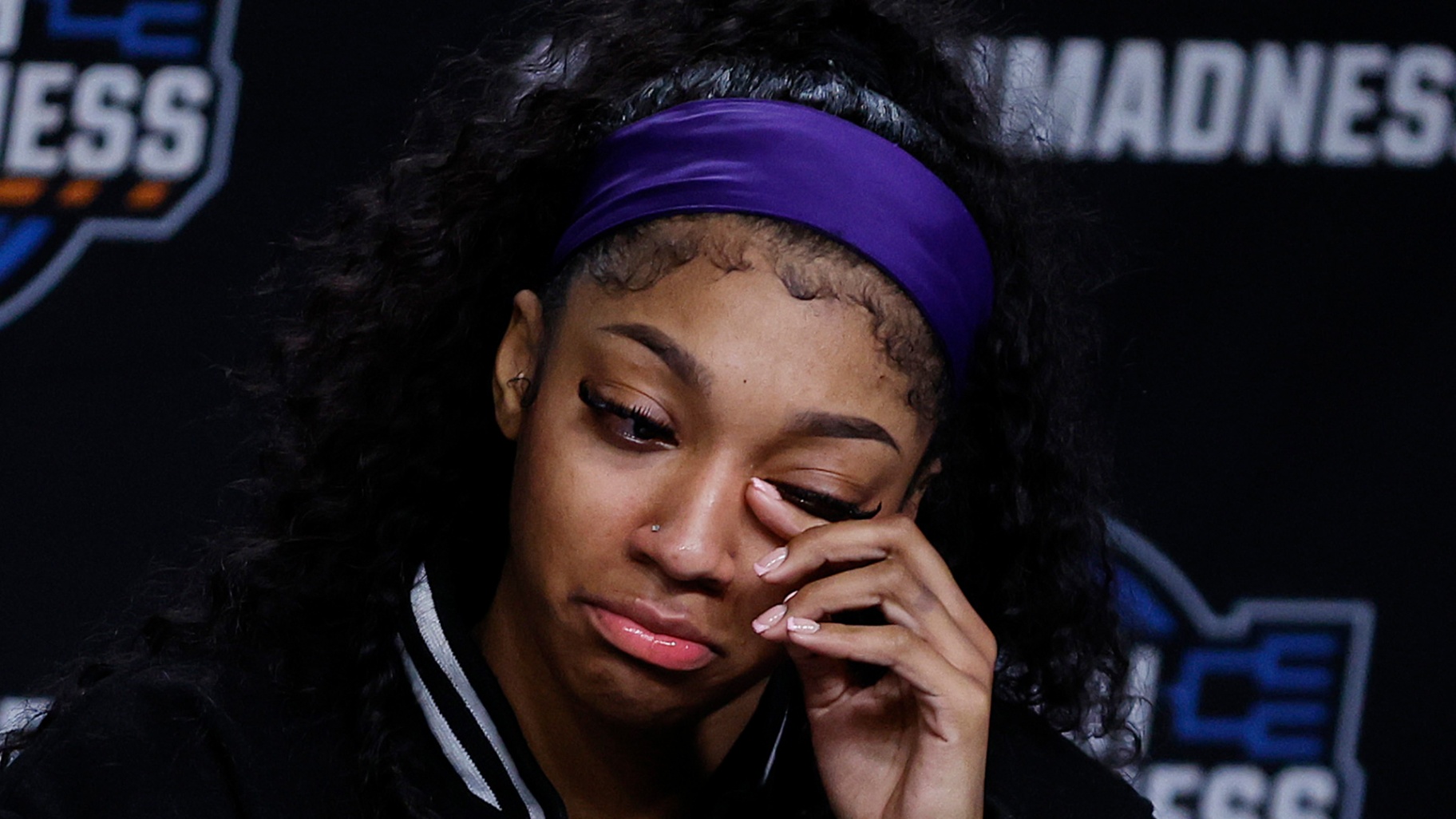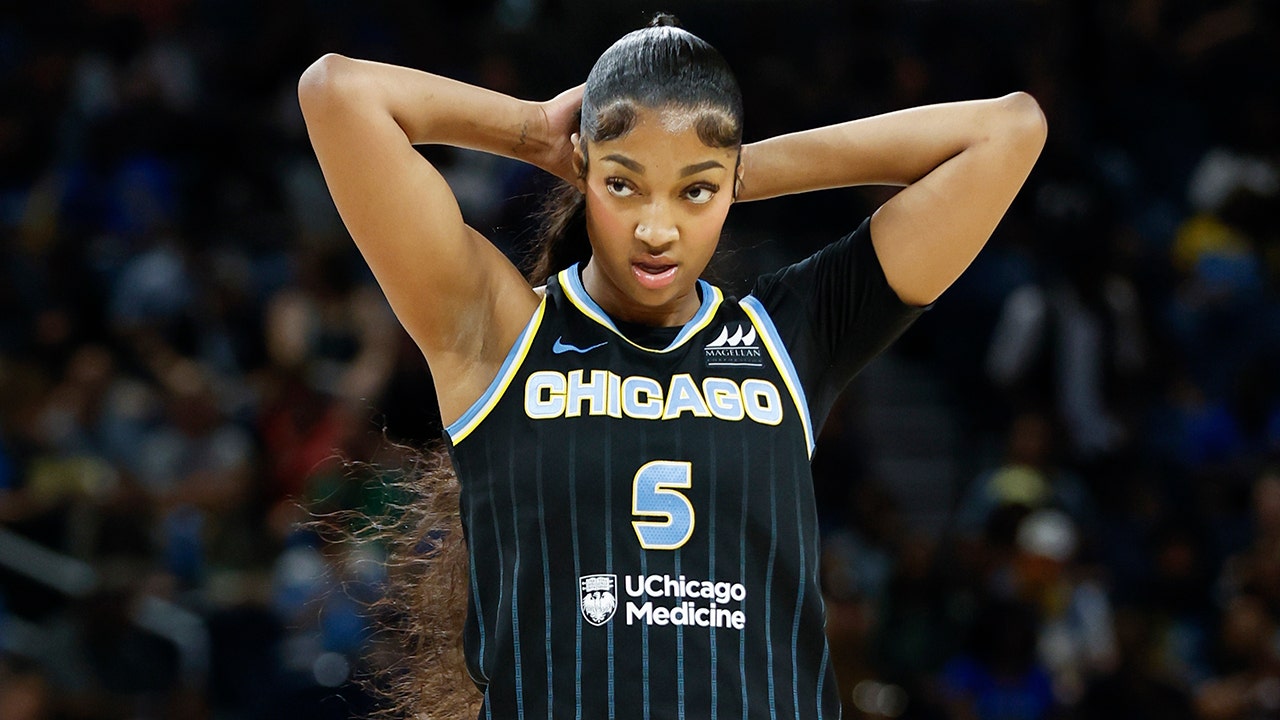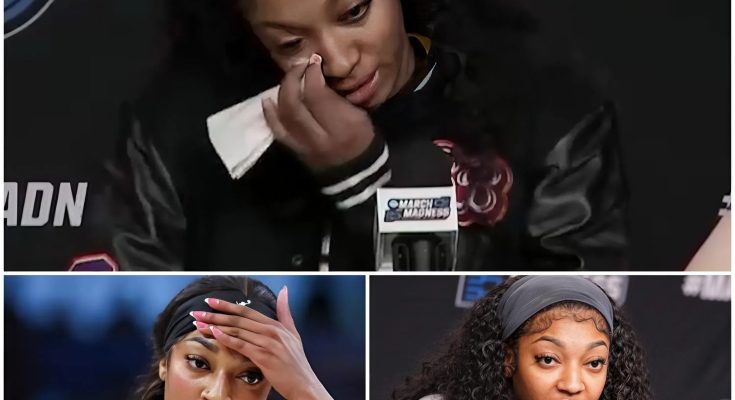
Angel Reese Speaks Out: WNBA Star Opens Up About Racial Bias and Mental Health Struggles
ANGEL REESE: “I’m So Tired”
WNBA star Angel Reese recently shared a powerful and emotional revelation about the challenges she faces both on and off the court. Speaking candidly about her experiences, Reese said, “They don’t respect me because I’m Black,” highlighting the persistent racial bias that has shaped her career. Her words struck a chord with fans and athletes alike, revealing the unseen pressures Black women in sports often endure.

The Burden of Racial Bias in Professional Sports
Despite her incredible talent and dominant performance, Reese has faced ongoing judgment and disrespect. These challenges come not only from opponents but also from fans, media, and even those she believed were supporters. “It’s not just fans or the media it’s people I thought supported me,” she admitted, underscoring the emotional toll of systemic bias in professional basketball.
This constant scrutiny forces athletes like Reese to navigate a double standard. When she expresses confidence or emotion, she is often labeled as “aggressive” or “disrespectful,” whereas white athletes may be celebrated for similar behavior. Reese’s candid acknowledgment of these injustices sheds light on a broader issue that extends far beyond individual games or seasons.
“I’m So Tired”: A Cry for Recognition
In a heartbreaking moment during her interview, Reese whispered, “I’m so tired.” These three words captured the exhaustion experienced by many Black women in sports who must constantly prove their worth while confronting societal prejudices. The phrase resonated widely across social media, eliciting an outpouring of support and empathy from fans, fellow athletes, and advocates.
Reese’s vulnerability also reflects the broader conversation around mental health in sports. Athletes are often praised for physical toughness, but their emotional and psychological well-being is too frequently overlooked. By sharing her struggle, Reese joins the ranks of athletes like Naomi Osaka and Simone Biles, who have prioritized mental health while advocating for systemic change.

Mental Health in the Spotlight
The WNBA star’s honesty has amplified the conversation about mental health support in professional sports. Reese’s experience illustrates how racial bias and societal expectations can compound stress, leading to significant emotional strain.
The reaction to her statement underscores the importance of addressing mental health with the same seriousness as physical injuries, ensuring that athletes are supported both on and off the court. Experts in sports psychology note that constant scrutiny and microaggressions can affect performance, self-esteem, and overall well-being.
Reese’s openness invites coaches, teams, and organizations to reevaluate the support systems in place for players, especially those from marginalized communities.
A Catalyst for Change
As Reese’s story spreads, it has prompted a larger dialogue about equity, respect, and inclusion within the WNBA and sports at large. Fans and commentators have rallied around her, calling for meaningful change to ensure that all athletes can thrive without facing discrimination or undue stress. Reese’s courage in speaking out also serves as inspiration for other athletes facing similar challenges.
Her voice reminds the sports community that talent should be celebrated on merit alone, not diminished by prejudice or bias. Whether Reese continues her career uninterrupted or takes a step back to prioritize her well-being, her honesty has sparked an essential conversation about fairness, empathy, and support.

The Road Ahead
Angel Reese’s statement is more than a personal reflection – it’s a call to action. The WNBA and sports organizations nationwide are now challenged to create safer, more inclusive environments where athletes are valued not only for their performance but also for their humanity.
By publicly sharing her struggle, Reese has empowered fans, teammates, and young athletes to acknowledge the realities of racial bias and mental health challenges. Her voice has become a symbol of resilience, a reminder that advocating for oneself is both courageous and necessary.
As Reese continues her journey, her story will remain a powerful testament to the need for systemic change. In her words, the world is reminded:
“We need to treat athletes’ mental and emotional health with the same urgency as physical injuries.”
Angel Reese has spoken her truth and the WNBA, and sports as a whole, cannot afford to ignore it.



